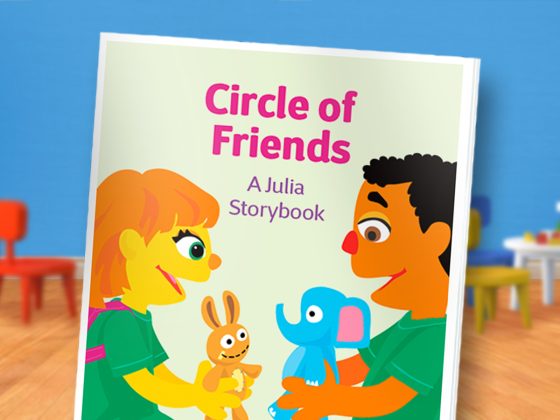
Circle of Friends
An autism-friendly storybook about how creating a circle of friendship is part of preventing bullying.
Sadly, bullying is something that autistic children are much too familiar with. Studies have shown that they are two to three times more likely to be bullied than neurotypical children. It is up to parents, teachers, and caregivers to make sure they have strategies in place to protect them. Here are some tips to consider:
- Stay observant. If a child starts behaving differently, withdrawing or acting out, or stops being interested in the activities they normally like, that could be a sign that there’s a problem.
- In the case of a child who’s verbal, try to figure out the problem by talking…and listening! It require extra reassurance and patience. Stress that the child is “reporting,” not “tattling,” and that it’s important that they do so. Make sure they know that it’s not their fault. Tell the child it’s up to grown-ups to keep them safe, and that everyone will work together to make that happen.
- Depending on the child, you may be able to offer some simple strategies, such as saying loudly, “That’s not okay,” or enlisting the help of a nearby grown-up, or having a classroom “buddy” (or several!). Most peers, when given the chance, want to be part of the solution.
- Enlist the help of staff, professionals, other parents and children. Brainstorm ideas. The more people buy in to the strategy, the more likely it is to work.
- Share the story of Julia from Sesame Street’s adventures at camp and think about ways each one of us can be a friendship superstar. Read the story again. Ask kids to look for pictures that show people supporting each other or offering a friendly hand. Ask, “What are the ways you help out friends and classmates?”
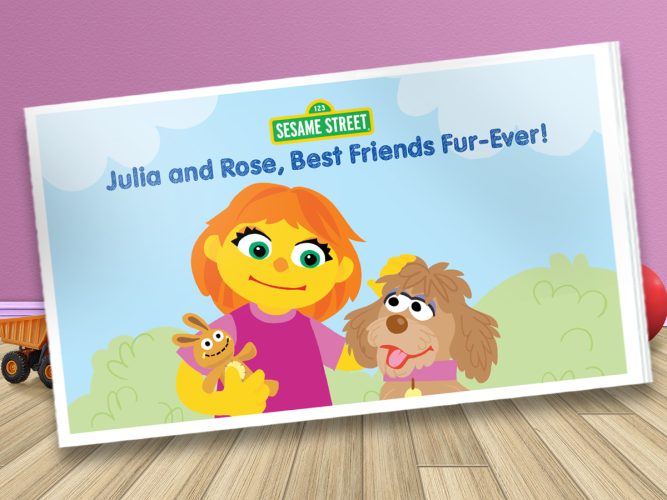
Julia and Rose – Best Friends Fur-Ever
When Sesame Street's Julia has an idea, she sees it through… with a little help from her family. This social storybook for autistic children models what’s possible!
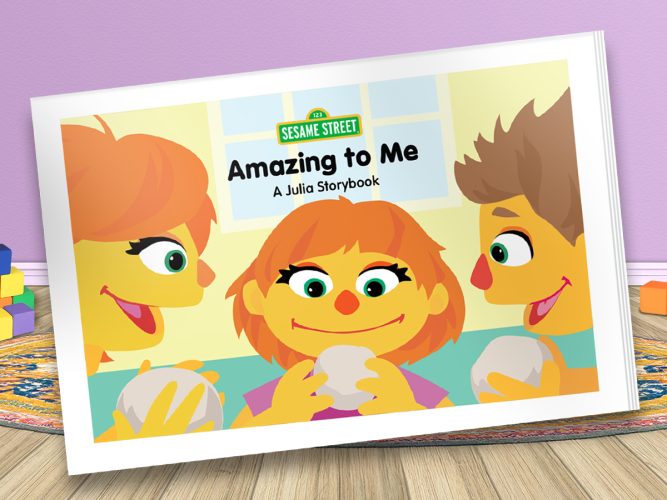
Amazing to Me
When Julia and her family do a special art activity together, Julia finds a way to add her own amazing touch!

Make a Pinch Pot!
Simple craft instructions to help your family make pinch pots from homemade dough together.
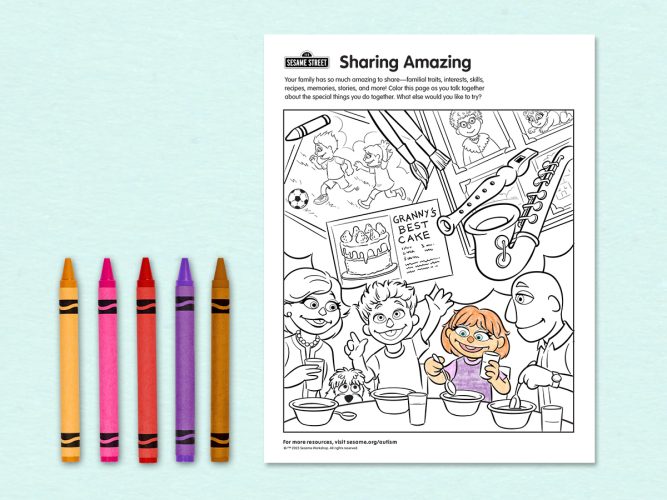
Sharing Amazing
An adult-child coloring page to spark ideas and connection.
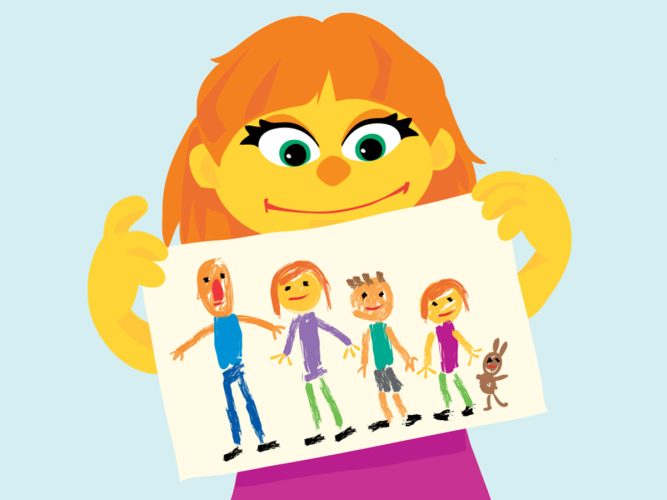
Autism and the Arts: A Conversation on Creativity and Community

Exploring the Amazing in Autistic Children: A Conversation with Camille Proctor, Founder of The Color of Autism Foundation
An article to help parents discover and support their autistic child’s unique perspective and personality
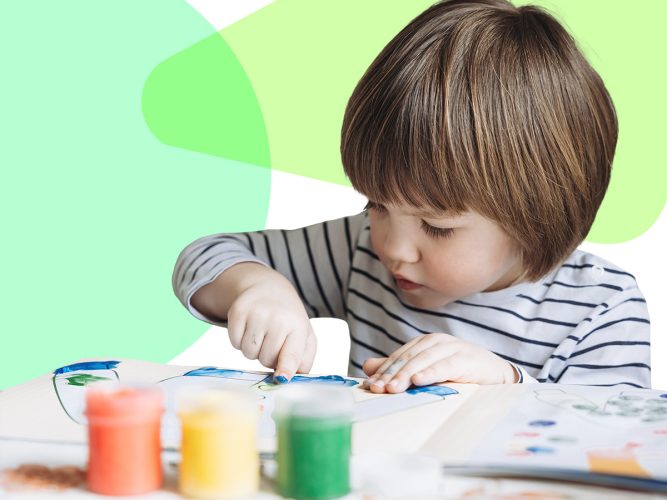
Creative, Talented, Amazing: A Conversation with Anna Wang, Co-founder of FCSN, about fostering autistic children’s talents
An article to help parents foster creative exploration and expression in their autistic child.
